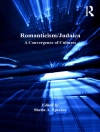The convergence of twentieth-century narrative and technology is one of the most important developments in current literary study. Roughly a decade after the founding of the Society for Literature and Science, and after the appearance of such influential books as Kathleen Woodward’s Culture of Information and William Paulson’s Noise of Culture, Joseph Tabbi and Michael Wutz have edited a landmark volume that seeks to summarize this still-emerging field. Through the essays and the wide-ranging overview provided by the editors’ introduction, Reading Matters shows how these theoretical concerns can contribute to the practical study of narrative, and it helps to make the field far more accessible to students and other serious readers of fiction.
The twelve original essays, published here for the first time, are the work of distinguished scholar-critics on both sides of the Atlantic. They cover the range of contemporary literature, from the canonical novels of high modernism and postmodernism through subjects only recently put on the academic agenda, such as cyberpunk and hypertext fiction.
In an age that has proclaimed the death of the novel many times over, the editors and contributors argue persuasively for the continued vitality of literary narrative. By responding in ingenious ways to the capabilities of other media, they assert, the novel has enlarged and redefined its territory of representation and its range of techniques and play, while maintaining its viability in the new media assemblage.
Yazar hakkında
Michael Wutz teaches in the English Department at Weber State University and is assistant editor of Weber Studies. His essays have appeared in Style, Modern Fiction Studies, Mosaic, Amerikastudien/American Studies, and other journals.












